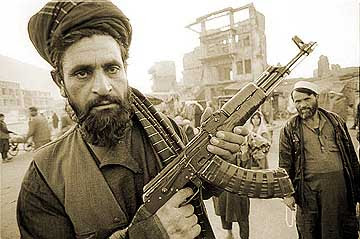 • Vali Nasr is a professor at the Naval Postgraduate School and an adjunct senior fellow at the Council on Foreign Relations. He is the author of "The Shia Revival: How Conflicts within Islam Will Shape the Future."
• Vali Nasr is a professor at the Naval Postgraduate School and an adjunct senior fellow at the Council on Foreign Relations. He is the author of "The Shia Revival: How Conflicts within Islam Will Shape the Future."In July 2007, Vali Nasr writing for Christian Sciennce Monitor said that Al Qaeda and the Taliban use Pakistani soil as a haven and training ground. Recent deals between the government and Pashtun tribes have in effect ceded the border region between Afghanistan and Pakistan to the Taliban and their Al Qaeda allies. A big reason Al Qaeda's influence is growing, according to the NIE, is the operational capability it enjoys in Pakistan.
Democracy should be wel-comed, but it will change little. The last time there was a transfer of power to a civilian government, in 1988, the military still chose the foreign minister and informed the prime minister that it would control the nuclear program, intelligence, security, and policies toward Afghanistan and India. This time, too, the military will continue to call the shots – especially when it comes to Afghanistan.
Islamabad is happy to nab foreign jihadis when pressured by the West or ban extremist groups that get out of hand, but it has been reluctant to uproot the infrastructure of extremism.
Extremist groups proliferate and operate in the open. Musharraf finds them useful in convincing Washington and Pakistan's middle classes that the military is all that protects the country from a Taliban-like Islamic state.
Without Pakistani cooperation, NATO and the US will have to substantially increase their commitments to contain the Taliban. That cooperation will not be forthcoming until the US addresses Pakistani interests.President Hamid Karzai's strong ties to Delhi and the mushrooming of Indian consulates across Afghanistan. The territory that they "owned" until 9/11, thanks to the Taliban, is now at best neutral and at worst the playground of their arch rival, India.
Washington can give Pakistan greater interest in Afghanistan's stability than it has now by encouraging Kabul to include Pakistan's allies and clients in government; and more important, to finally recognize its international border with Pakistan. Read more
 Gen. Musharraf Is the Problem
Gen. Musharraf Is the Problem








